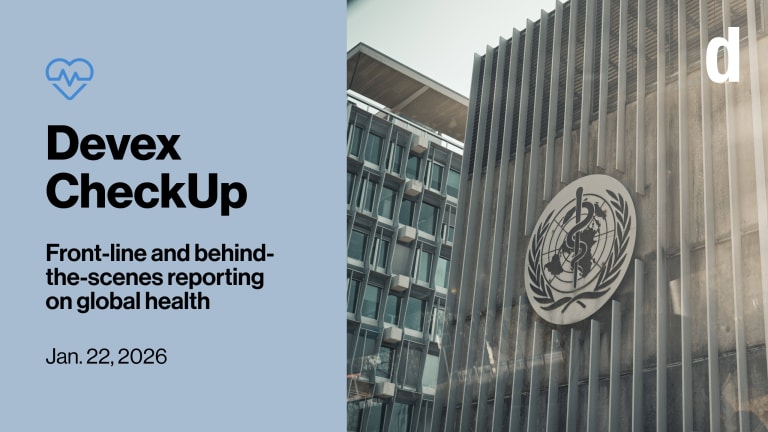
MANILA — The World Health Organization was quick in its response to the Ebola outbreak in the Democratic Republic of the Congo, but still needs to work on staffing, security, and coordination, according to the latest evaluation of its health emergencies work — with strong criticism coming from some member states.
The ongoing outbreak in DRC is the second most severe Ebola outbreak ever recorded, with more than 400 confirmed deaths so far. The Independent Oversight and Advisory Committee, established to monitor the work of WHO in outbreaks and emergencies, found WHO has been quick in deploying key staff, establishing Ebola treatment centers, and releasing funds from its Contingency Fund for Emergencies to fill financial gaps in the response.
Staff also expressed “remarkable progress” on internal coordination and communication. This was in “huge contrast” to the West Africa Ebola response, IOAC President Felicity Harvey told member states on Monday at WHO’s executive board meetings in Geneva, Switzerland.
Director-General Tedros Adhanom Ghebreyesus has shown “strong leadership,” and the committee also found that WHO is perceived as a “reliable and credible partner” by governments and other organizations working on the ground, Harvey said.
But outstanding concerns remain, in particular on staffing and security. The committee found that most of the 123 WHO staff members deployed to the DRC Ebola outbreak in Equateur province in May 2018 were redeployed to North Kivu in August 2018, due to limited staff with the necessary experience and skills to manage emergencies and willing to work long periods in a highly stressful environment where insecurity is a huge issue.
This is “unsustainable” in the long term, and could jeopardize the response, according to the committee.
There are still over 600 positions that need to be filled under WHO’s health emergencies program, particularly at country level, due to funding shortages, lack of a talent pool, and slow recruitment processes.
The committee also expressed concerns about WHO’s security management and recommended the organization develop a framework of accountability in line with the United Nations’ Security Management System.
A number of countries welcomed the report at the meeting but offered additional recommendations. The representative from Germany wanted an evaluation of how WHO functions outside of prominent infectious disease outbreaks like Ebola. The representative from Jamaica wanted to understand how WHO’s work can be applied within the realities of individual countries.
The representative from Russia was more critical.
“We are not ready to share the happily optimistic assessment, which has been made by the IOAC, on the work which has been done by the WHO and its partners,” the representative said, arguing that health workers continue to be infected by the Ebola virus, which could reflect biosafety rules not being properly observed, and inefficient staff recruitment and training. To date, 57 health workers have been infected, with 20 deaths, according to WHO.
While some things may have improved, the organization’s work to coordinate capacities that can be provided by member states remains “inadequate,” the representative added: “WHO should be a channel and organizer for those who want to participate in emergency response, and who can meet the demand and provide the qualified staff. Unfortunately, as yet, this is not happening.”
Earlier in the discussions, the representative said Russia has specialists who can be mobilized in emergencies such as Ebola outbreaks.
The representative also questioned the legitimacy of WHO’s joint external evaluations, the instrument through which WHO helps to assess a country’s capacity to prevent, detect, and respond to public health threats.
In response, WHO chief Tedros said the joint external evaluation process is voluntary, and it is up to countries to decide whether they want to pursue it. The instrument is used to ensure uniformity in assessing countries’ capacities, to understand where the gaps are, and where WHO can try to help, he said, but “if any country doesn’t want it, it doesn’t want it.”
Meanwhile, Michael Ryan, WHO’s assistant director-general on emergencies, admitted the emergencies program is far from perfect and faces challenges. But it continues to improve to “live up to [member states’] expectations,” he said.
WHO was heavily criticized for its slow and bureaucratic response to the West Africa Ebola outbreak, which in turn led to a wide-scale review and reform of its emergency operations. In 2018, IOAC noted some progress and outstanding challenges in operationalizing the organization’s new health emergencies program.
Search for articles
Most Read
- 1
- 2
- 3
- 4
- 5








